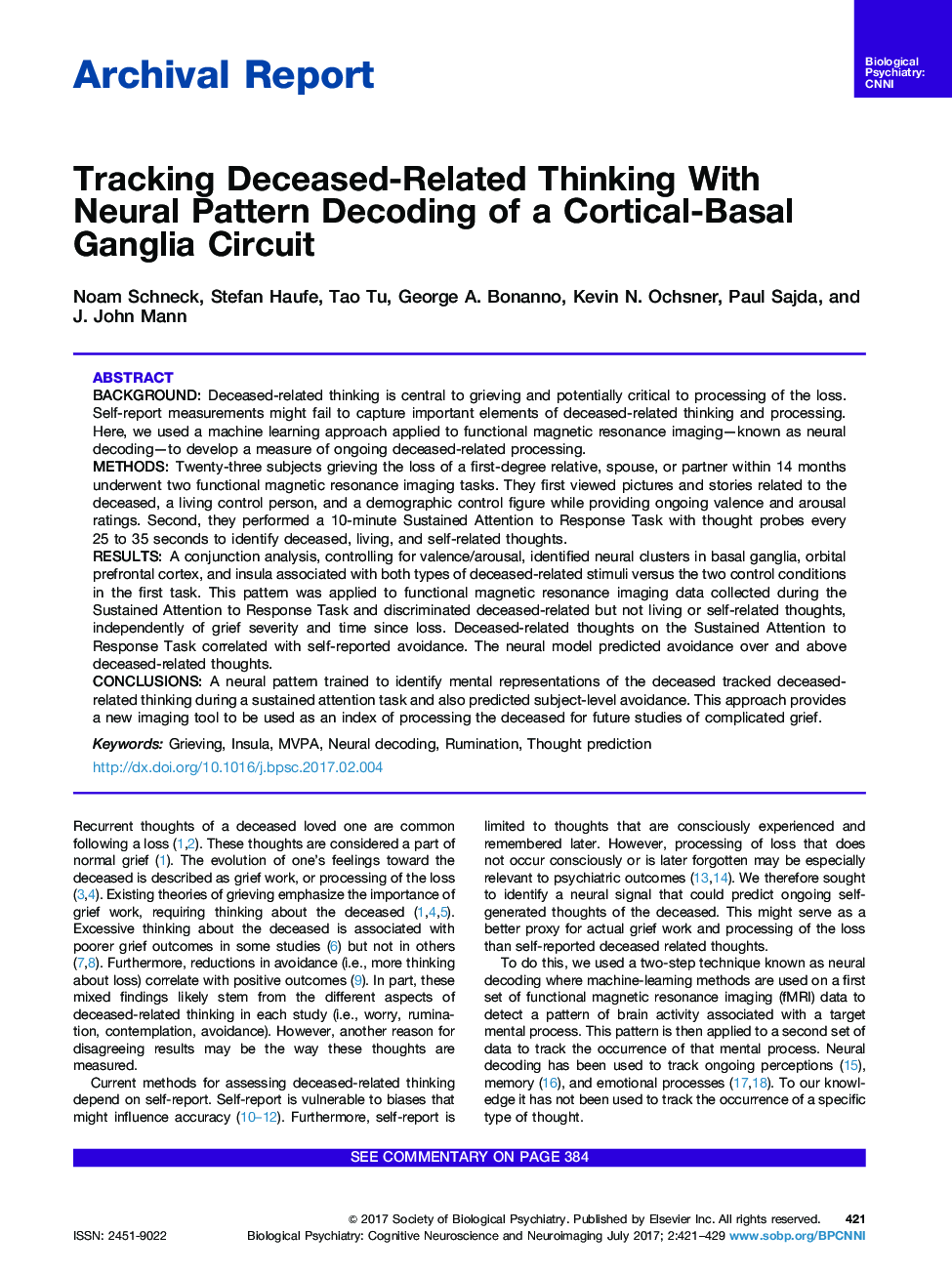| Article ID | Journal | Published Year | Pages | File Type |
|---|---|---|---|---|
| 5721104 | Biological Psychiatry: Cognitive Neuroscience and Neuroimaging | 2017 | 9 Pages |
BackgroundDeceased-related thinking is central to grieving and potentially critical to processing of the loss. Self-report measurements might fail to capture important elements of deceased-related thinking and processing. Here, we used a machine learning approach applied to functional magnetic resonance imaging-known as neural decoding-to develop a measure of ongoing deceased-related processing.MethodsTwenty-three subjects grieving the loss of a first-degree relative, spouse, or partner within 14 months underwent two functional magnetic resonance imaging tasks. They first viewed pictures and stories related to the deceased, a living control person, and a demographic control figure while providing ongoing valence and arousal ratings. Second, they performed a 10-minute Sustained Attention to Response Task with thought probes every 25 to 35 seconds to identify deceased, living, and self-related thoughts.ResultsA conjunction analysis, controlling for valence/arousal, identified neural clusters in basal ganglia, orbital prefrontal cortex, and insula associated with both types of deceased-related stimuli versus the two control conditions in the first task. This pattern was applied to functional magnetic resonance imaging data collected during the Sustained Attention to Response Task and discriminated deceased-related but not living or self-related thoughts, independently of grief severity and time since loss. Deceased-related thoughts on the Sustained Attention to Response Task correlated with self-reported avoidance. The neural model predicted avoidance over and above deceased-related thoughts.ConclusionsA neural pattern trained to identify mental representations of the deceased tracked deceased-related thinking during a sustained attention task and also predicted subject-level avoidance. This approach provides a new imaging tool to be used as an index of processing the deceased for future studies of complicated grief.
